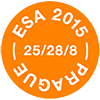|
RN coordinator: Katarina Prpić, independent researcher, Zagreb, Croatia katarina(at)idi.hr
Inequalities in and through science and technology as challenges for sociological research Increasing social inequalities, exacerbated by neoliberal policies and international economic crisis, have been an issue of science and technology studies (STS) even prior to the crisis. Instead of normative claims about the socially beneficial or harmful role of science and technology, a more complex sociological perspective has been promoted. This perspective, postulating that S&T impacts are closely interrelated to social context and circumstances has the potential to be more productive in studying the relationship between techno-scientific development and social inequalities. The global economy, with its increasing role of S&T, seems to increase inequalities within contemporary societies, as well as between them. Therefore, it has become crucial and urgent to not only understand how science and technology influence the increase in and different forms of inequality, but also how these factors can help to mitigate inequality, primarily through S&T policies. A tension has been recognized between the dominant concept of the knowledge economy paradigm (focused on science-based industries and profitable knowledge) and broader social objectives already built into the EU's Lisbon Agenda. Such conflicting economic and social approaches have been reflected in recent ERA (European Research Area) policy. For example, the aim of achieving European competitiveness in S&T which stresses research excellence is accompanied by some re-distributive goals of the ERA, such as networking and collaboration, gender equality and greater European research cohesion at both regional and local levels. The meritocratic recruitment of researchers, professional competition and mobility all support achieving excellence, but can also undermine some social objectives like gender equity or more equal national and regional techno-scientific development. Conflicting economic and social paradigms and objectives of understanding, as well as dealing with inequalities in and through science and technology, require the mobilization of the attention and imagination of sociologists and other social scientists. Thus, the Sociology of Science and Technology Network (SSTNET) invites papers to its sessions on S&T inequalities and differences, their structural, representational and distributional forms, (re)production, their reflections on S&T policy, human resources, science governance and accountability mechanisms, as well as the socio-economic impacts of established and emerging technologies. Papers may also touch on any of the following general issues by raising conceptual and/or empirical questions: ● Inequalities through science and technology ● Scientific controversies regarding the forms and origins of inequality ● Studies of science, technology and inequality across countries and groups ● Differences and tensions regarding knowledge production and social organization between public and private S&T sectors ● Socio-economic implications of new technologies and social inequalities ● S&T policies in the face of global inequalities ● NIS (national innovation systems) approaches and the mobilization of S&T against inequality ● Differences and inequalities in S&T capacities and resources ● Innovation agendas – global economic competitiveness vs. social sustainability and cohesion ● Distribution of power, decision-making about S&T and public participation ● Inter-university and intra-university differences in performance and excellence ● Research excellence, cumulative advantage and professional differentiation ● Researchers’ mobility in terms of international circulation and inequality ● Gender inequality in S&T ● Measure or metrics of inequalities within the scientific community
Papers addressing these and other STS topics from a sociological, other social or interdisciplinary perspective are welcome. PhD students’ submissions are especially encouraged. Authors are invited to submit their abstracts to the general session. Specific sessions will be created a posteriori. |
|
|
|
Notes for authors Authors are invited to submit their abstract either to the general session or any specific session. Please submit only to one session. After abstract evaluation, coordinators will have the chance to transfer papers between sessions where applicable. Abstracts should not exceed 250 words. Each paper session will have the duration of 1.5 hours. Normally sessions will include 4 papers. Abstracts must be submitted online to the submission platform, see below. Abstracts sent by email cannot be accepted. Abstracts will be peer-reviewed and selected for presentation by the Research Network; the letter of notification will be sent by the conference software system in early April 2015. Abstract submission deadline (extended): 15th February 2015 Abstract submission platform: www.esa12thconference.eu |
|
If you have further questions on the conference, please visit the conference website. For further information on the Research Network, please visit www.europeansociology.org. |






